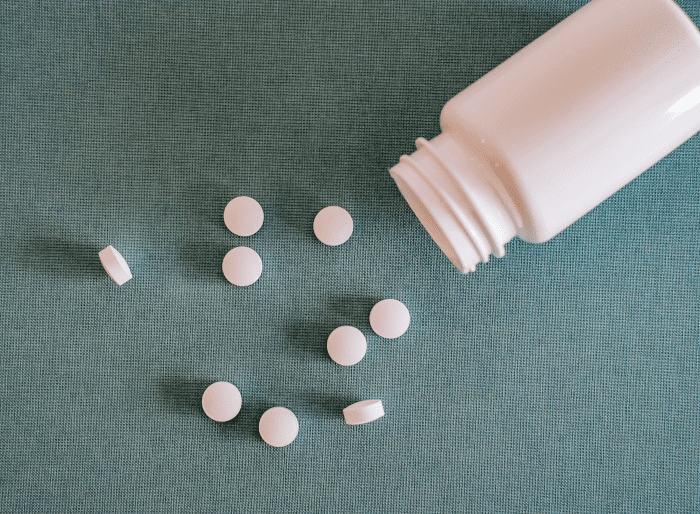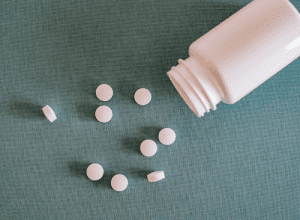OxyContin, Oxycet, Oxycodone, oh my!
Before diving into the tough stuff, let’s clarify some terms. Oxycodone is an opiate that is an active ingredient in pain medications. OxyContin is a brand-name medication that contains oxycodone (Percocet is another one). When taken as prescribed, OxyContin operates on a time-release mechanism, introducing oxycodone into the body slowly. People who use OxyContin illicitly often break up the pill to snort or inject it, destroying this time-release mechanism so that the oxycodone affects them more quickly. For the purposes of this blog post, we’ll discuss oxycodone generically.
Let’s pause for a quick survey.
- Have you or a loved one ever taken oxycodone for a reason unrelated to why it was prescribed to you?
- Have you or a loved one ever taken oxycodone in combination with other medications or recreational drugs?
- Are you unable to stop using oxycodone even when you want to?
- Do you or a family member ever feel guilty about using oxycodone?
- Do your parents, family, or friends ever complain about your oxycodone use?
If you answered yes to any of these questions, it’s possible that an oxycodone dependence is at play.
You’re not alone. In 2017, about 1.7 million Americans suffered from a substance abuse disorder involving an opioid prescription painkiller.
In this post, we’ll address why oxycodone is so addictive yet so easy to prescribe. We’ll also discuss the path to freedom from oxycodone addiction.
Why Is Oxy so Addictive?
Oxycodone changes the way we detect and process physical pain.
Imagine you’re a small child, and you wedge your finger into a light socket and immediately feel an intense, unpleasant shock travel from your fingertip up through your shoulder. You retract your hand instantly and begin to cry.
When our bodies experience some type of trauma–electrocution, a cut, a burn, a broken bone, a fever, etc.,–that trauma travels along our nerve endings. Those nerve endings send a distress signal to our brains. Such signals trigger that reflex in us to remove the source of pain as quickly as possible.
Oxycodone alters that essential neurological signaling. The brain on oxycodone doesn’t register pain. For those who live with intolerable physical pain caused by cancer, injury, a slipped disk in the back, etc., a powerful painkiller can bring tremendous physical and psychological relief.
Unfortunately, too many doctors have prescribed oxycodone without caution. The U.S. has documented over 50 million painkiller prescriptions. People are in pain and they need help managing it. And yet these same people are also getting addicted to the medications that are supposed to be making their lives easier.
So, How Do We Know When to Get Off Oxycodone?
If you answered yes to most of the questions in the survey above, it’s safe to say that an oxycodone dependence has developed. Here’s another list of statements that may help you determine whether it’s time to get off the drug.
- I use oxycodone very often or in higher-than-recommended doses, even when I don’t want to.
- I spend too much time trying to increase my oxycodone prescription, or buying it from an unofficial source, and I spend a lot of time using it and recuperating from it.
- I find myself craving oxycodone.
- I’m starting to develop or have developed a tolerance to oxycodone, so I need more and more of it to have an effect.
- I feel like my body reacts very negatively when it doesn’t have oxycodone.
If any of the statements are true for you, it’s definitely time to decrease your oxycodone use or stop altogether.
How Do We Stop Taking Oxycodone When We’re Still in Pain?
Much of the pain signaled to our brains is the result of inflammation and swelling. There are lots of non-opioid alternatives to manage it, including non-opioid painkillers, antidepressants, anesthetic injections, and non-drug treatments like massage therapy, physical therapy, acupuncture, meditation, and exercise.
Here at Great Oaks Recovery Center, we know all about oxycodone dependence and addiction, and we are not here to judge. Instead, we offer compassionate, professional, evidence-based treatment to help you begin to reclaim your overall health and well-being. Whether your questions pertain to detoxification, residential rehabilitation, or aftercare, don’t hesitate to reach out to us.




